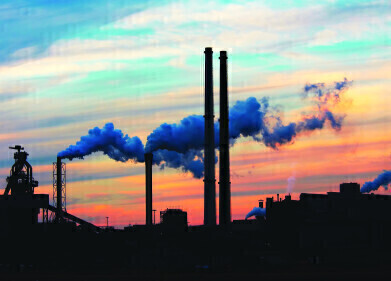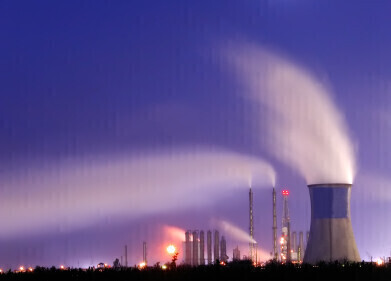Synthetic fuels
What Happens During the Combustion of Fossil Fuels?
Nov 27 2014
Fossil fuels, such as coal, oil and natural gas, are created when organic matter decays and becomes compressed beneath layer upon layer of sand, earth, rock and ocean. Interestingly, the name “fossil fuel” is actually derived from the word “fossil”: the mineralised remains of ancient creatures which once populated the earth. Burning fossil fuels yields carbon dioxide, water and energy; the process of burning fossil fuels is known as “combustion”.
The combustion reaction
During chemical reactions, energy is either absorbed into the environment (endothermic reaction) or released into the environment (exothermic reaction), and chemical bonds are broken and formed. Bond making is an exothermic process, while bond breaking is an endothermic process. Combustion reactions require oxygen. Fossil fuels are composed primarily of hydrocarbons, which are converted into carbon dioxide and water during a combustion reaction.
Of the three fossil fuels known to us, natural gas is the cleanest burning. Coal and oil are more chemically complicated, and release a cocktail of potentially harmful substances into the atmosphere when combusted. In order to detect SO2 in combustion gases, florescence – induced by ultra violet light – is used. We explore further in this article: Interference-free Sulphur Analysis in Fuels.
The energy content of coal
Coal is composed primarily of carbon, water, some hydrogen and oxygen (although certain types of coal also contain small quantities of nitrogen, sulphur and a handful of other substances). The majority of the carbon found in coal is bound, meaning there is one C-C bond to every C atom. Energy release occurs when a C-C bond is broken. Roughly 43g of carbon dioxide is produced to every 23g of C burnt. If insufficient amounts of oxygen are available during combustion, carbon monoxide – a colourless, odourless and extremely dangerous gas – is produced.
Energy use, efficiency and the future
Fossil fuels represent an increasingly scarce commodity. Recently, the UN-backed Intergovernmental Panel on Climate Change (IPCC) stated that the unrestricted use of fossil fuels must be phased out in order to avoid catastrophic climate change. You can read more about this event in: How Much Longer Can We Depend on Fossil Fuels?
In addition to this, the burning of fossil fuels has been linked to global warming – a rise in the average temperature of the earth’s climate system. While historical, political and geographical contexts have led to the adoption of individual fuels and technologies across the globe, it is thought that 95% of the world’s energy requirement is currently met by fossil fuels.
As prices and temperatures rise, investment in greener energy sources is increasing. However, even renewable energy sources have environmental costs. Wind power, for example, requires a great deal of land, creates a great deal of noise, and can impact upon birdlife in the surrounding areas, while hydroelectricity has been linked to the destruction of farmland, dislocation of people and loss of habitat.
In the future, new technologies may provide us with answers to the questions we face currently. In the meantime, we must begin to think hard about how the energy we use every day is produced and whether we value it highly enough.
Digital Edition
PIN 26.1 Feb/Mar 2025
March 2025
Analytical Instrumentation - Elemental Analysis for Quality and Process Control at Refineries, for Lubricants and Wear Metals in Engine Oils - Synthetic Lubricants: New Developments - Scaling...
View all digital editions
Events
Apr 08 2025 Birmingham, UK
Apr 08 2025 Kielce, Poland
Apr 08 2025 Ravenna, Italy
Apr 08 2025 Southampton, UK
Apr 08 2025 London, UK



















